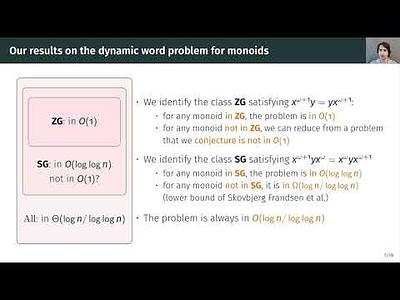By: Tiago Ferreira University College London, Léo Henry University College London, Raquel Fernandes da Silva University College London, Alexandra Silva Cornell University
Active automata learning algorithms cannot easily handle conflict in the observation data (different outputs observed for the same inputs). This inherent inability to recover after a conflict impairs their effective applicability in scenarios where noise is present or the system under learning is mutating. We propose the Conflict-Aware Active Automata Learning (C3AL) framework to enable handling conflicting information during the learning p... more
Active automata learning algorithms cannot easily handle conflict in the observation data (different outputs observed for the same inputs). This inherent inability to recover after a conflict impairs their effective applicability in scenarios where noise is present or the system under learning is mutating. We propose the Conflict-Aware Active Automata Learning (C3AL) framework to enable handling conflicting information during the learning process. The core idea is to consider the so-called observation tree as a first-class citizen in the learning process. Though this idea is explored in recent work, we take it to its full effect by enabling its use with any existing learner and minimizing the number of tests performed on the system under learning, specially in the face of conflicts. We evaluate C3AL in a large set of benchmarks, covering over 30 different realistic targets, and over 18,000 different scenarios. The results of the evaluation show that C3AL is a suitable alternative framework for closed-box learning that can better handle noise and mutations. less
By: Antoine Amarilli, Louis Jachiet, Charles Paperman
We study the dynamic membership problem for regular languages: fix a language L, read a word w, build in time O(|w|) a data structure indicating if w is in L, and maintain this structure efficiently under letter substitutions on w. We consider this problem on the unit cost RAM model with logarithmic word length, where the problem always has a solution in O(log |w| / log log |w|) per operation.
We show that the problem is in O(log log |w|) for... more
We study the dynamic membership problem for regular languages: fix a language L, read a word w, build in time O(|w|) a data structure indicating if w is in L, and maintain this structure efficiently under letter substitutions on w. We consider this problem on the unit cost RAM model with logarithmic word length, where the problem always has a solution in O(log |w| / log log |w|) per operation.
We show that the problem is in O(log log |w|) for languages in an algebraically-defined, decidable class QSG, and that it is in O(1) for another such class QLZG. We show that languages not in QSG admit a reduction from the prefix problem for a cyclic group, so that they require {\Omega}(log |w| / log log |w|) operations in the worst case; and that QSG languages not in QLZG admit a reduction from the prefix problem for the multiplicative monoid U 1 = {0, 1}, which we conjecture cannot be maintained in O(1). This yields a conditional trichotomy. We also investigate intermediate cases between O(1) and O(log log |w|).
Our results are shown via the dynamic word problem for monoids and semigroups, for which we also give a classification. We thus solve open problems of the paper of Skovbjerg Frandsen, Miltersen, and Skyum [30] on the dynamic word problem, and additionally cover regular languages. less

